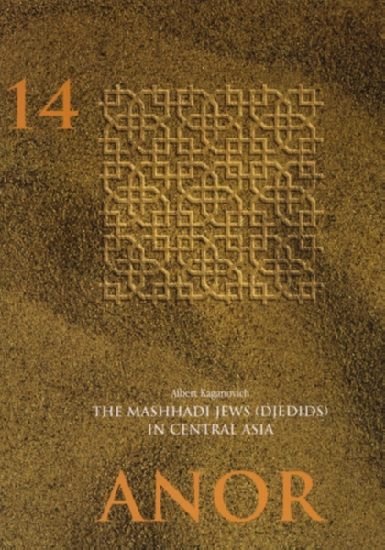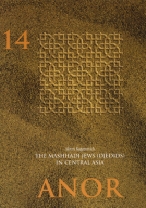The Mashhadi Jews (Djedids) in Central Asia
Albert Kaganovitch
The Djedids
The Djedids are so called because they were "new" Muslims - newly concerted from Judaism. It is the name for a relatively small group of Jews from Mashhad, Iran, who were more or less forced to accept Islam. Many of them subsequently left Iran for Tsarist Central Asia where they formed a separate group, although they partly also merged with Bukharan Jews. They prospered in international trade between the Tsarist Empire, Iran and Afghanistan, with the apex of their fortunes situated shortly before the outbreak of World War I. Because of the war and later as a consequence of the Revolution, decline set in.
The History of Mashhadi Jews
Many researchers were interested in the history of Mashhadi Jews in Iran and Afghanistan.(33) However, almost no attention was given to their life in Central Asia except for several articles in Russian."` In the meantime, it was Central Asia where Mashhadi Jews achieved considerable improvement in their economic status, and as a consequence, their spiritual level grew as well. It was not by accident that Yakov Dilmanian, the researcher of Mashhadi Jews, laid special emphasis on the "Russian stage" of their history that he singled out as one of the six periods in their history.(35)
This paper attempts to fill the vacuum in the history of one of the most interesting lranian Jewish communities.
(ibid., S.7-8)
Kaganovitch, Albert:
The Mashhadi Jews (Djedids) in Central Asia
ANOR 14 Hrsg. von Paul, Jürgen, Prof. am Institut für Orientalistik - Universität Halle / Ingeborg Baldauf, Prof. für Mittelasienwissenschaft - Humboldt Universität zu Berlin
Klaus Schwarz Verlag
ISBN 978-3-87997-141-6
Erscheinungsdatum: 2007
1. Auflage
Paperback, 92 Seiten


